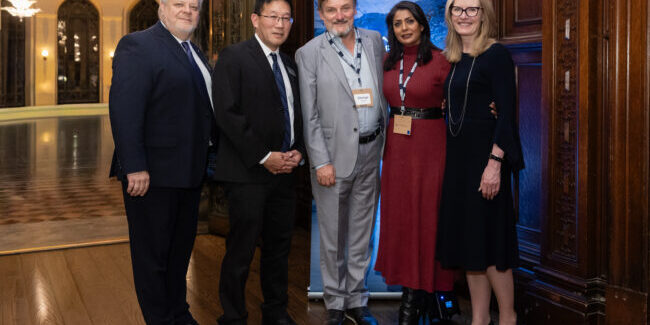New funding from the Government of Canada will support a multidisciplinary collaboration designed to inform strategic, evidence-based investments in transportation infrastructure across the Greater Toronto and Hamilton Area (GTHA).
The project — known as The Road to Net Zero — is led out of Positive Zero Transport Futures, a cluster within the University of Toronto’s Mobility Network.
By combining computer modelling with participatory data collection and community engagement, the team will quantify how transformations in transportation infrastructure can achieve shifts in travel behaviour that reduce greenhouse gas emissions, improve public health and enhance equity.
“Changes to our transportation networks are not only about reducing commute times or getting cars off the road — they also affect where people choose to live and the quality of life that they have in different neighbourhoods,” says Professor Marianne Hatzopoulou (CivMin) who founded Positive Zero Transport Futures in 2022 and is leading the new project.
“If we want to fully understand the impacts of our choices, we need to combine our expertise in spatial and temporal modelling of emissions with community-based techniques that enable us to paint a more holistic picture.”
Collaborators on the project include U of T Engineering Professors Shoshanna Saxe (CivMin), Khandker Nurul Habib (CivMin), Eric Miller (CivMin), Greg Evans (ChemE, ISTEP), Jeff Brook (Dalla Lana School of Public Health, ChemE) as well as Professors John Robinson (Munk School of Global Affairs and Public Policy) and Erica DiRuggiero (Dalla Lana School of Public Health).
The project also includes a number of partners outside U of T, such as environmental NGO Pollution Probe, the City of Toronto and various community associations.
“Transportation is an issue that affects everybody, and multidisciplinary collaboration has always been a hallmark of our approach,” says Judy Farvolden, Managing Director of the Mobility Network.
“This project is a great example of the way that academic research can be strengthened and augmented with insights from the communities that are impacted by these changes. We can then bring this knowledge to our partners in government to make informed, evidence-based decisions that can lead to better outcomes for all.”
The funding from the Government of Canada accounts for more than $800,000 of the project’s $1.2 million budget. Other sources of funding include the Dean’s Strategic Fund, which helped launch Positive Zero Transport Futures, as well as the Mobility Network.
“These important investments are essential to driving infrastructure solutions that make a difference in communities,” says The Honourable Sean Fraser, Minister of Housing, Infrastructure and Communities.
“With research and data, we can strengthen housing and infrastructure to make a positive impact for Canadians from coast to coast to coast.”




